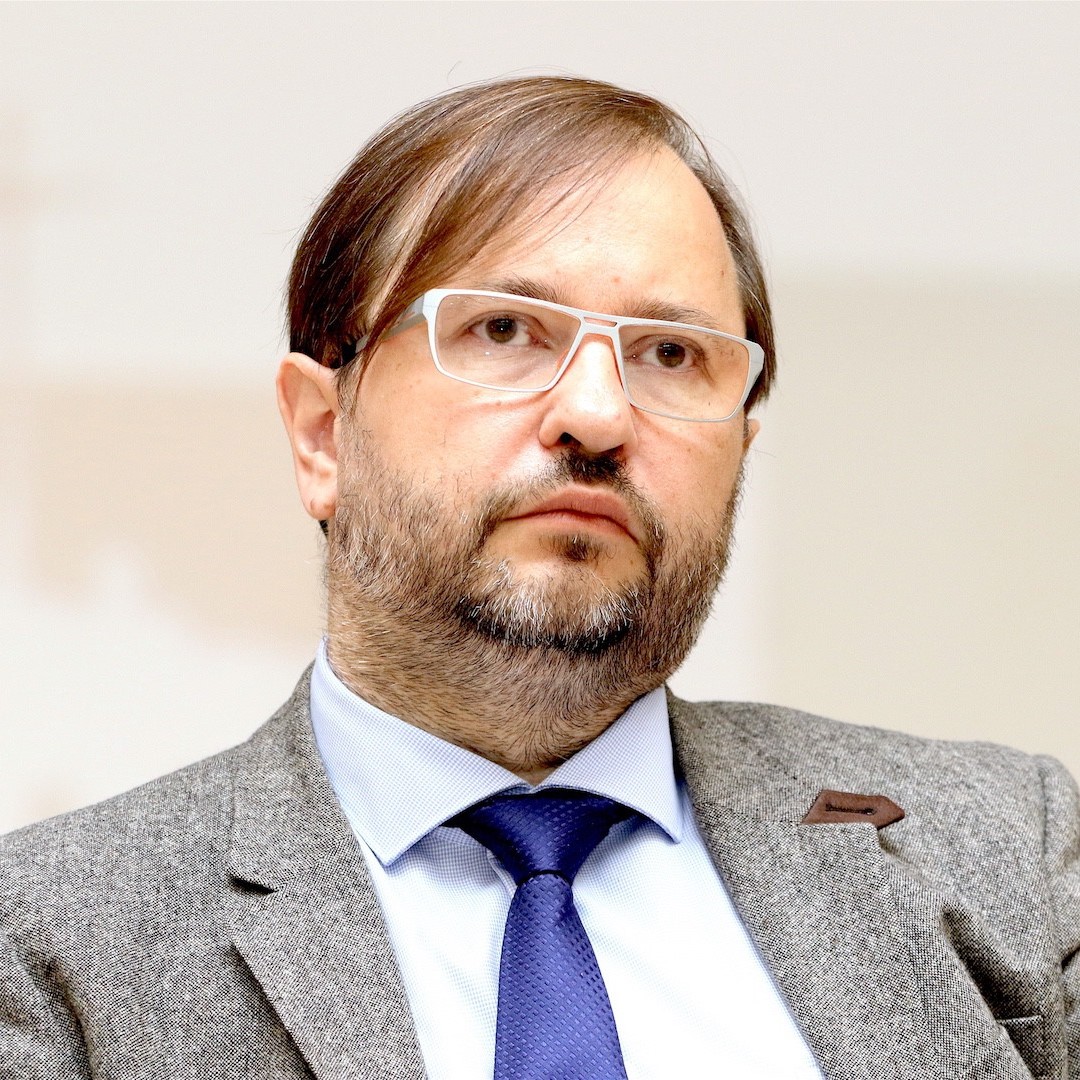Between Heaven and Hell: How Russians Feel about Digitalisation

The digital world is already a reality for Russians. Widespread internet access, low-cost mobile communications, convenient online services and banking applications, instant messengers—all of these make everyday life more comfortable, access to resources more equal, and society more equitable. Russians’ attitude towards the expansion of technologies such as AI was debated during an expert discussion organised by the HSE University Centre for Social Research and Technological Innovation and the St Petersburg Politics Foundation.
Russians are mostly optimists when it comes to technology. They expect that digitalisation will improve their life—making it richer, longer, healthier, and more interesting—and lead to a more just society. At the same time, the majority are not afraid that AI and robots will take away their jobs.
An expert study and focus groups were conducted as part of a project titled ‘The Concept of “Digital Paradise” as a Space of Public Expectations and Fears’. The project was implemented by a working group that included experts from the Centre for Social Research and Technological Innovation and the St Petersburg Politics Foundation. The working group was headed by Elena Dzhibilova (Centre for Social Research and Technological Innovation) and was based at the Institute of Scientific Information for Social Sciences of the Russian Academy of Sciences.
The study included document analysis, a series of expert interviews and focus groups, as well as a federal telephone survey conducted by the Centre (with a sample of 1,600 respondents).
The study authors spoke about the perceptions of the benefits of digitalisation they identified in citizens. First among them are an improvement in the quality of everyday life due to saving time and effort, expanding opportunities for entertainment, improving safety, the implementation of smart medical care with treatment that can be adjusted daily and the ability to monitor blood pressure and blood glucose levels. There is a possibility of achieving digital —and perhaps even biological— immortality. ‘In medicine, in addition to fighting diseases, we also improve and perfect the human body, isolating the genes that are responsible for the aging process,’ says one of the experts interviewed. ‘I believe that by 2100, we will be able to achieve not only digital, but also biological immortality.’
The researchers note that social relations gain perceived benefits in the form of unlimited opportunities to communicate with relatives, friends, and people with similar interests, reduced levels of bureaucracy and corruption, and a narrowing of the gaps between the rich and the poor and between metropolitan cities and remote areas. ‘Today, digitalisation has already given people some freedom. We see how they fill [their free time] with communication, electronic communication, sitting in cafes,’ said one of the experts.
The experts interviewed also see a positive effect in the economic sphere. Digitalisation leads to lower costs, provides a basis for the modernisation of production and agriculture, and provides opportunities for online sales and purchases of goods, job hunting, and training in new professions. There is more time to engage in creativity, personal growth, and support for each other. ‘There will be a universal basic income in most places. We will not need to work the way we work now. The very structure of work will change, and change considerably. Both the state and corporations will provide a universal basic income,’ believes one of the experts.

Evgeny Mikhaylenko, Director of the Centre for Social Research and Technological Innovation and Dean of the Faculty of Urban and Regional Development at HSE University
‘For Russians, the digital world is already a reality in many respects. Widespread availability of internet access, low-cost mobile communications, convenient online government services, online doctor’s appointments, banking applications, instant messengers—all of these eliminate unnecessary labour and costs, increase everyday comfort and opportunities for self-development, and make access to resources equal and society more just.’
As such, it is logical that Russians are optimistic about the future of technology, he says. ‘It is known that our level of techno-optimism is quite high: about 60% of Russians positively assess the role that digital technology will play in the future (moreover, there are even more such optimists in metropolitan areas and cities with populations of a million plus), while a core of 26% are extremely focused on the use of the most advanced digital technology,’ Evgeny Mikhaylenko states.
Russians’ techno-optimism is also confirmed by their attitudes to creating a digital copy of themselves. Despite the radical nature of the proposal, more than a quarter (26%) of the respondents said they would use such technology (31% of men, 39% of respondents aged 18–29), while 67% responded in the negative.
The positive image of a ‘digital paradise’ reflects Russian people’s dreams about the further development of technology and the bright world of digital socialism, in which technology will free them from hard work, give them freedom of self-realisation, and provide security and comfort.
The key components of ‘digital paradise’ include:
- freeing people from routine tasks
- solving environmental problems and improving human health (comprehensive physical check-ups, high-quality diagnostics and treatment selection)
- ensuring human security and freedom
- creating comfortable conditions in smart homes using AI
Moreover, the study participants believe that the digital world contributes to the development of justice. Global access to information and culture makes people more open to new things and trust each other more, while digital technology makes it possible for people to evaluate themselves and others more objectively and have equal access to resources.
‘I live in the digital world all the time, without leaving it for a second, and I also teach. To me, anonymity and objectivity are some of the key points—to give students a fair assessment, not to overestimate or underestimate them, and to eliminate favourites,’ explains one respondent.
At the same time, the interviewees highlighted the possible disadvantages of digitalisation. They noted the risk of blurring the boundaries between work and personal time, as well as a reduction in in-person communication. Economic fears are associated with the replacement of people by robots and artificial intelligence: there may be a fall in employment, with demand remaining only for highly qualified specialists and those whose work does not require any qualifications.
The main negative expectations of ‘digital hell’ include:
- job loss due to automation
- deterioration of social communication, loss of warmth and emotion in communication
- personal data leaks
- dependence on technology
- formation of ‘clip thinking’ [characterised by fragmented, illogical thinking and switching between fragments of information without perceiving the bigger picture–ed.]
At the same time, Russians do not expect human labour to be totally replaced. Only 33% of those surveyed believe that robots and AI will replace humans in most or all professions. Almost half (47%) believe that such professions will be in the minority, and 17% believe that robots and AI will not be able to replace people at all. The respondents also believe that ‘helping’ and ‘creative’ professions (doctors, teachers, scientists) will remain.
St Petersburg Politics Foundation President Mikhail Vinogradov believes that the image of the digital world ‘attracts those who believe that the world will become nicer and better.’

Mikhail Vinogradov, St Petersburg Politics Foundation President
'Digital hell ticks the boxes of all those who expect deterioration, but do not agree that the cause of this deterioration can be humans themselves, and not some external source. The dispute between digital optimists and digital alarmists may be eternal, and everyone will be sure until the end of their life that they were right. But the digit will continue to remain a universal symbol of all the attractiveness and catastrophic nature of the changes expected in the near future and adapting us to these changes.’
Efim Fidrya, Deputy Director of the Centre for Social Research and Technological Innovation, and Viktor Poturemsky, sociologist, social psychologist, and Director of Political Analysis at the Institute of Social Marketing, also spoke at the discussion.
See also:
Russia and Africa: Sharing Knowledge in Digitalisation
A school focusing on the digitalisation of public administration for civil servants from African countries was held in Moscow in December 2023. The school proved the high demand for Russian training programmes — representatives of 23 countries and 3 international organisations received certificates following advanced training.
Russian Government and HSE University to Help with Digitalisation of African Countries
The Russian-African Competence Transfer Programme in the Field of Public Administration Digitalisation in African Countries, which is being implemented by HSE University's Centre for African Studies, will be partially state-financed. The subsidy will be provided by the Russian government in accordance with the corresponding order signed on September 21.
Russia to Help Africa with Public Service Digitalisation
Russian and African civil servants are to exchange experience in the field of digitalisation. The programme was presented by HSE University’s Centre for African Studies in cooperation with the Innopraktika company. The programme organisers are also ready to carry out educational events in any country on the continent.
Intercultural Awareness through the Looking Glass
Dr Anatoly Kharkhurin joined HSE University in 2019 as an Associate Professor at the Faculty of Social Sciences. He received his PhD in Experimental Psychology from the City University of New York and taught in the United States and the United Arab Emirates. This academic year he is teaching Psychology of Thinking and Reasoning and Psycholinguistics. Dr Kharkhurin shared with The HSE Look his perspective on the prospects for the digital transformation of social communication.


